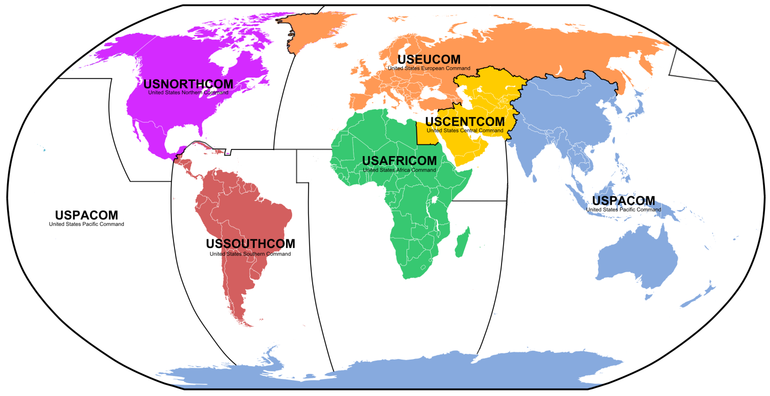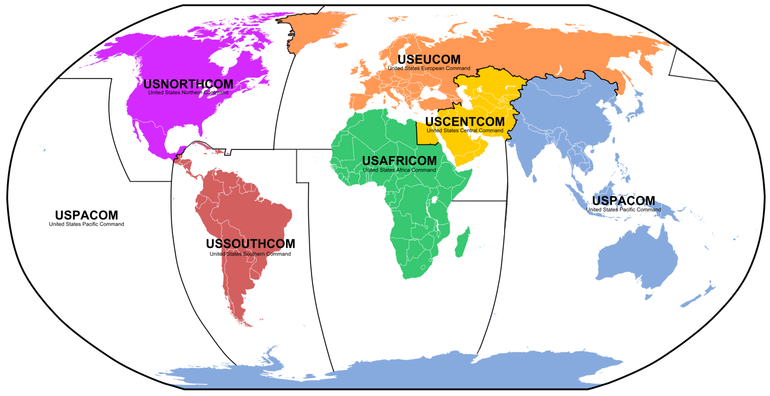Biden, Blinken and DOD
Although the Blinken-Biden foreign policy approach may be more palatable to European governments and much of the US population, that doesn’t mean it’s that different from what preceded it. Besides the possible reinstatement of the Iran nuclear deal and a re-engagement with Cuba, little seems likely to change. US residents will continue to be told that China is a potentially dangerous enemy and that Russia wants to rule the world. This is despite the fairly obvious evidence to the contrary. While both nations seem to want to expand their economic influence—a natural result of the capitalist nature of their economies—the actions of neither nation indicate a desire to create an empire of military bases and operations like that currently run by the United States. Although Washington would like the world to believe China’s ship movements near its borders are aggressive in nature, a more honest perspective defines those actions as primarily defensive. In a similar fashion, the Russian actions in eastern Ukraine, Georgia and Crimea could be considered as such. No matter how one perceives these actions, however, they pale behind the US military reach around the globe in oceans and countries far from its borders. The presence of two carrier groups in the Mideast, at least two in the Pacific and a couple others in waters far from any US shores is much different from the defensive positions held by Chinese and Russian ships. In addition, the continued presence of US troops and special forces in nations around the world, including many that directly border Russia, China and smaller adversaries like Iran and Venezuela can only be considered defensive in nature if one accepts Washington’s belief that the world is Washington’s to own.
As an indication of his worldview, it is revealing to note Blinken’s membership in the Center for Strategic and International Studies(CSIS). According to its website, the CSIS “has been dedicated to finding ways to sustain American prominence and prosperity as a force for good in the world.” One is not being particularly cynical when they point out that the good this statement is referring to is the good of Wall Street, and not necessarily Main Street. The CSIS bills itself as a nonpartisan entity. It is funded in large part by war industry contractors, energy corporations and US based banks with an expressed purpose of “maintaining US prominence” in the world. Given the nature of its board of trustees, it’s clear that what that nonpartisansship means is it represents the power elites that run the United States. Democrats and Republicans share a common goal of ensuring the US remains the world’s most powerful state. The differences of opinion the parties have on certain issues do not exist when it comes to enveloping the world in the web of US imperialism. There are differences in how to go about this, but not on the goal itself. This is why both parties are up in arms about China’s rising star and Russian challenges in the Mideast and Europe. The non-partisan nature of the Board lies in the inclusion of both US capitalist parties, not in the inclusion of anti-capitalist or anti-imperialist viewpoints.

Image by Lencer, CC BY-SA 3.0.
Biden, Blinken and DOD
As mentioned at the beginning of this piece, Biden’s foreign policy is fundamentally the same as that of the past several decades. The differences we are likely to see will be mostly cosmetic. Yes, moves like re-instituting the Iran agreement and re-establishing ties with Cuba are important and a step away from unnecessary aggressiveness. However, these actions, if undertaken, have an underlying goal of creating broader support for the ongoing hegemonic endeavor that defines US foreign policy. If there are any defining differences in foreign policy approaches over the last five presidential administrations one such difference would be this: should the US create coalitions of nations when it attacks another country or should it go it alone? One could reasonably argue that the military actions taken under cover of a coalition of the “willing” tend to be more successful, while primarily solo adventures have tended to backfire. This isn’t to say that any US-inspired military action of the last thirty years has achieved the goals originally presented by the White House, but those where the US acted unilaterally seem to have been much more disastrous than those where a coalition of allies and client states was involved.
It is not my purpose here to predict the future of US foreign policy in the Biden White House. However, there are some potentially predictive statements and actions that have come from that direction since Inauguration Day. One such statement that sticks in my mind is Secretary of State Blinken’s repeated reference to something he calls a “rules-based order.” So, what is this rules-based order Mr. Blinken is always going on about and who makes the rules? Near as I can tell, it’s Washington who makes the rules he’s talking about and it’s Wall Street that informs them. The apparent purpose of this rules-based order is to institute capitalist “democracy” throughout the world, even though the current situation seems to show that capitalism and democracy are not synonymous nor is democracy necessarily the preferred form of government among many capitalist entities.
In a March 24, 2021 speech Blinken accused China of economically coercing Australia. To state the obvious, this statement was certainly not self-reflective. After all, Washington has written the book about economic coercion for at least the past sixty years. Indeed, it is currently sanctioning several nations because they are resisting its attempts to dominate the world. Sanctions are the definition of economic coercion. Indeed, pointing fingers at China’s coercive behavior only highlights Washington’s decades of such behavior.
While it is somewhat reasonable to assume that the Biden White House will try and avoid instigating a military conflict with China, Russia, Iran or Venezuela, there is little indication it will withdraw all forces from the Middle East or South Asia or that Special Forces operations around the globe will cease or even be cut back. If present budget proposals remain close to what they are, Biden’s first Pentagon budget will check in at around 1.7 percent more than Trump’s last budget. After all, history tells us that when economic and political coercion fails, war and threats of war often follow. Therefore, the war department’s budget must never decrease.
The post Biden, Blinken and DOD appeared first on CounterPunch.org.



Comments
Comments for this post are closed.